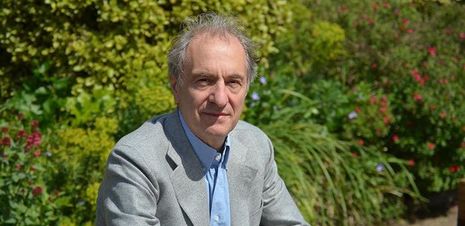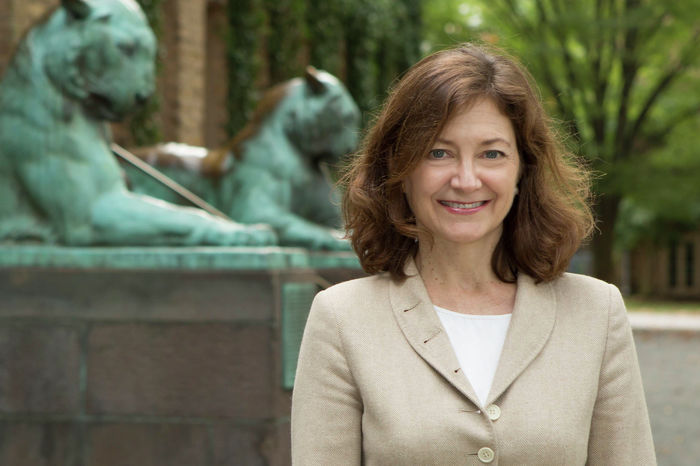Freeling praises toughest parts of Toope’s record in opening speech
The new acting vice-chancellor also spoke about University governance, calling for more participation in Cambridge’s democratic structures

This morning (1/10), the start of the academic year was marked by the vice-chancellor’s annual address to the University in Senate House.
Acting vice-chancellor Anthony Freeling praised the legacy of Stephen Toope, the outgoing vice-chancellor, thanking him for making the University “even greater”.
His praise touched on several of the more difficult elements of Toope’s tenure, saying the University is now “more aware of – and more committed to supporting – student mental health”, a comment which comes in the wake of a string of suspected student suicides last year.
Freeling also said that Toope was leaving the University “unequivocally committed to academic freedom and freedom of expression”. Toope's tenure was marked by bitter fights over free speech, which saw the outgoing vice-chancellor strongly criticised by some dons, and in parts of the right-leaning press.
Similarly, the acting vice-chancellor praised “an exciting new partnership to bring more than 1,000 young African scholars to Cambridge.” It was announced last month that the University would be expanding research partnerships in Africa, after a report found that Cambridge benefitted from the slave trade.
Additionally, Freeling lauded the University’s progress on tackling climate change. This comes after extended criticism of the University by climate activists protesting Cambridge's ties to fossil fuel firms, especially Schlumberger, an oilfield services company.
As well as praising his predecessor’s more difficult moments, Freeling focussed on University governance.
The acting vice-chancellor called for greater democracy at the heart of the University . He said that participation in the University’s democratic life has been “fairly limited”, revealing that important discussions and decisions have “often been left to a small minority of Regent House members”.
He called on all members of Regent House - largely academic fellows and senior university administrators - to “engage in the debates” and use their vote, stating that it was their “democratic duty” to do so.
He also outlined his commitment to smoothing the transition to the next permanent vice-chancellor. Professor Deborah Prentice will take up the role in nine-months if the Regent House accepts her nomination.
Freeling described the process as akin to a relay race, and said that his role was: “to get hold of the baton, then to make the greatest possible progress, and finally to pass the baton on.”
The acting vice-chancellor noted that his tenure would be brief and told the audience: “Success in my role, as in the relay race, lies as much in the quality of the baton changes as in what I might do during my time in post.”
 Features / Should I stay or should I go? Cambridge students and alumni reflect on how their memories stay with them15 December 2025
Features / Should I stay or should I go? Cambridge students and alumni reflect on how their memories stay with them15 December 2025 News / Dons warn PM about Vet School closure16 December 2025
News / Dons warn PM about Vet School closure16 December 2025 News / Cambridge study finds students learn better with notes than AI13 December 2025
News / Cambridge study finds students learn better with notes than AI13 December 2025 News / SU reluctantly registers controversial women’s soc18 December 2025
News / SU reluctantly registers controversial women’s soc18 December 2025 News / News In Brief: Michaelmas marriages, monogamous mammals, and messaging manipulation15 December 2025
News / News In Brief: Michaelmas marriages, monogamous mammals, and messaging manipulation15 December 2025









